12 October 2022
Food at the center of human life and livelihoods
How ICLEI Africa uses a rights based food systems approach to address food inequities.

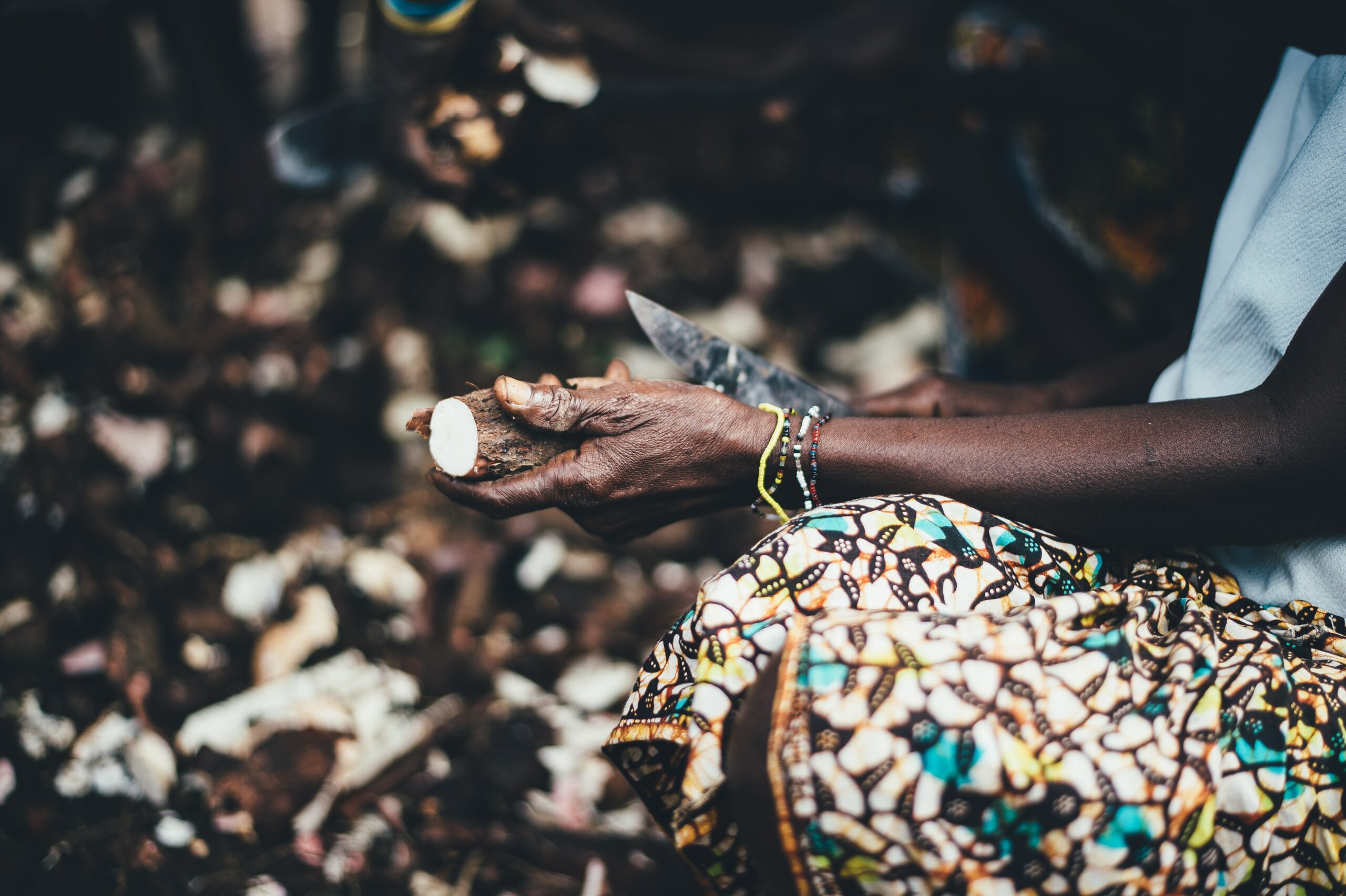

Food insecurity continues to be a global crisis (1). Factors such as the COVID-19 pandemic, poverty and hunger, environmental and climate crises, civil disorders and the Russia-Ukraine conflict have revealed the vulnerabilities that lie within the global food system (2). These global crises have emphasised the imperative need to guarantee stable access and availability of food to ensure that the global population is able to fulfil its right to food even in times of food system distress and that no one is left behind. As we celebrate the annual World Food Day 2022 theme, ‘Leave no one behind’ it is important that those with the agency to raise awareness on the impacts of shocks on food and nutrition security, and those with agency to drive action towards recovery do so. Many have continued to suffer from hunger and poverty as a result of the shocks and so as nation’s put strategies for recovery, they should ensure that the strategies take into consideration all those who are affected by the crises so that no one is left behind. Moreover, food access and availability for all at all times is becoming more critical as Africa strives to deliver on the Goals of Agenda 2063.This requires deliberate and concerted efforts in prioritising the food system and ensuring a human rights-based approach to addressing food insecurity, which is being exacerbated by global crises.
We have seen that ‘food’ demonstrates the most powerful interlinkages between our cities, our environment, our health and wellbeing, our nature and our climate, and offers vast potential for improving equity and sustainability on our planet.
~ Kobie Brand, Regional Director, ICLEI Africa and Deputy Secretary General, ICLEI, AfricanCITYFOODMonth Campaign, 2020
The right to adequate food is a fundamental human right and thus Africa and other regions on the globe have made commitments to improve food insecurity in protection of this right. These commitments include the Malabo Declaration of 2014, the Sustainable Development Goals, Agenda 2063 and other international and regional declarations, as well as protections embedded in national constitutions and legal frameworks. Internationally, this right is protected in the Universal Declaration of Human Rights, 1948, Article 25(1), which states, “Everyone has the right to a standard of living adequate for the health and well-being of himself and of his family, including food, clothing, housing and medical care and necessary social services…”. The right to food is also emphasised in treaties and agreements and enshrined in Article 11 of the International Covenant on Economic, Social and Cultural Rights (ICESCR) (3). It is important to consider that violating the right to food violates the enjoyment and realisation of other human rights, including the rights to health, education, life, participation in economic, political and social activities,etc because human rights are ‘interdependent, indivisible and interrelated’ (4).
Additionally, the constitutions of many African countries do in some way or another refer to the right to adequate food. A few constitutions that have explicit and direct provisions on the right to food include the Democratic Republic of Congo, Article 47, which states, ‘The right to health and to food security is guaranteed’ (5); The Republic of Kenya Article 43(c), which states, ‘Every person has the right.to be free from hunger, and to have adequate food of acceptable quality’ and Article 53(1)(c), which states ‘Every child has the right to basic nutrition, shelter and health care (6)’; and South Africa, Article 27(1)(b) which states, ‘Everyone has the right to have access to sufficient food and water; (2) The State must take reasonable legislative and other measures, within its available resources, to achieve the progressive realization of each of these rights (7).’
As Africa strives to deliver on Agenda 2063, it is important to reflect on the food insecurity trends in Africa and the potential for Africa to deliver on the goals. Some of the goals that have the potential to eradicate hunger and improve food insecurity if attained include Goal 3 which is healthy and well nourished citizens. The priority area for this goal is health and nutrition. According to the latest estimates for food and nutrition security in Africa, more than one-fifth of the African population, 281.6 million, experienced hunger in 2020, an increase of 46.3 million from 2019 (8). In addition to hunger, millions of Africans suffer from widespread micronutrient deficiencies (9), but overweight and obesity are already serious public health problems in many countries. Since 2000, the percentage of under-five overweight children in Africa has increased by nearly 24% (10). Obesity and overweight are primarily caused by an imbalance in energy between calories consumed and calories burned. Around the world, there has been a rise in the consumption of energy dense foods, high in sugar and fat and a rise in physical inactivity brought on by the sedentary nature of many jobs, shifting transit options, and growing urbanization. As a result, progress to reach global nutritional goals by 2030 remains unacceptably slow (11). Although the progress to attain the SDGs in 2030 is slow, Africa still has the potential to deliver on the Goals of Agenda 2063 considering that there are still 41 years remaining.
Furthermore, Africa stands out as the most affected region in the world in terms of low household income losses. The poverty headcount rate in 2021 (Purchasing Power Parity (PPP) $ 1.90 per day) is estimated to have risen by 3 percentage points following the pandemic compared to the estimated poverty level prior to COVID-19 in 2021. Moreover, 478 million people were in extreme poverty in 2019, an estimated 490 million people in Africa in 2021 live under the poverty line of $ 1.90 a day which is 37 million more than expected without a pandemic (12). The high levels of poverty in Africa indicate that a huge proportion of the population is unable to access basic rights, including the right to food. Africa’s high poverty and inequality levels, challenges the realisation and prioritisation of the right to food, as guaranteed in many African constitutions.
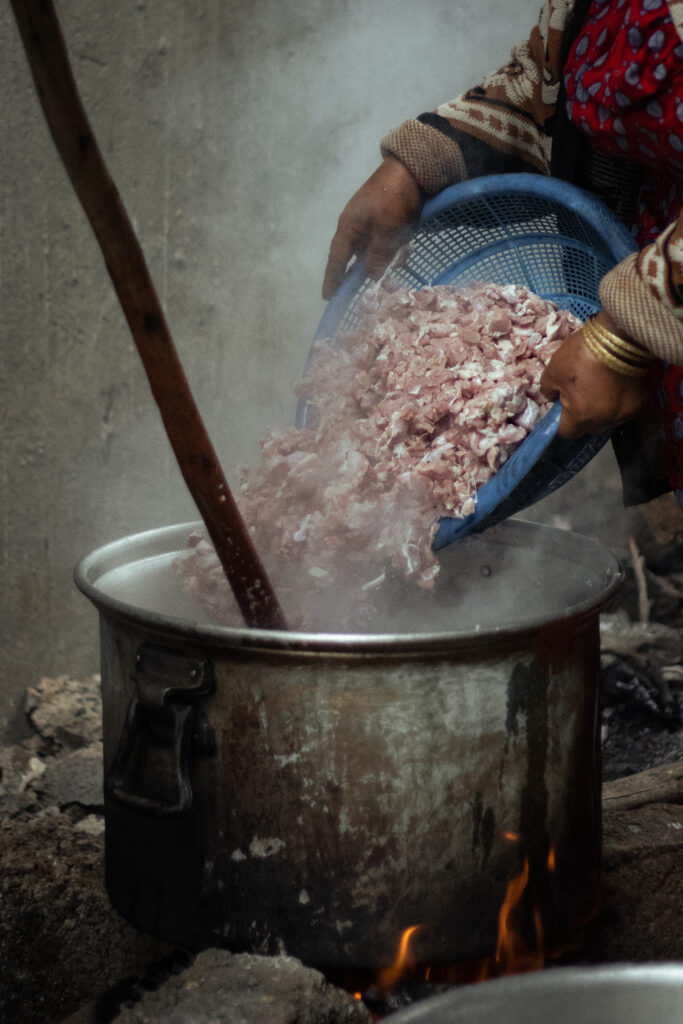
In furthering the fulfilment of the right to food in Africa and across the globe, ICLEI Africa adopts a rights based systems approach to ‘food’, by attempting to draw connections between access to nutritious food and other key rights and urban thematic areas such as enhancing citizen health and wellbeing, environmental regeneration, sustainable livelihoods, climate action, citizen participation in governance and access to services. We identify challenges that hinder access to the right to food and offer cross cutting interventions for a sustainable future. We do this through supporting local and regional governments with the right tools for inclusive governance that prioritises the needs of vulnerable groups.
ICLEI Africa, in partnership with FAO, is leading a project called Food For Rebuilding Economies in Gauteng and Kwa-Zulu Natal provinces of South Africa (FoodForRebuilding). FoodForRebuilding aims to use food as a tool to rebuild the economies of the two prominent South African economic hubs following the unrests that took place in the country in July 2021. This project promotes inclusivity of vulnerable groups (including woman, elderly, disabled, youth as well as low-income/poor persons and persons of colour) in activities within the food system with the aim of rebuilding their livelihoods and creating an environment for vulnerable groups to realise their right to food. This project will make recommendations for provincial and national governments that support the participation of vulnerable groups in economic activities which may in turn break the intergenerational cycle of poverty.
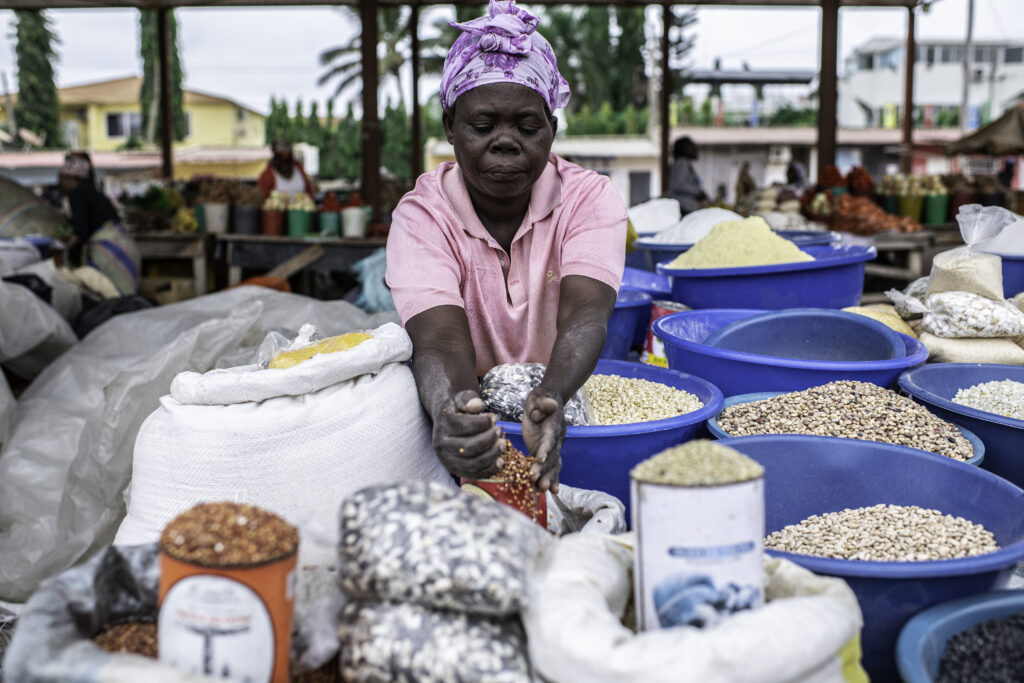
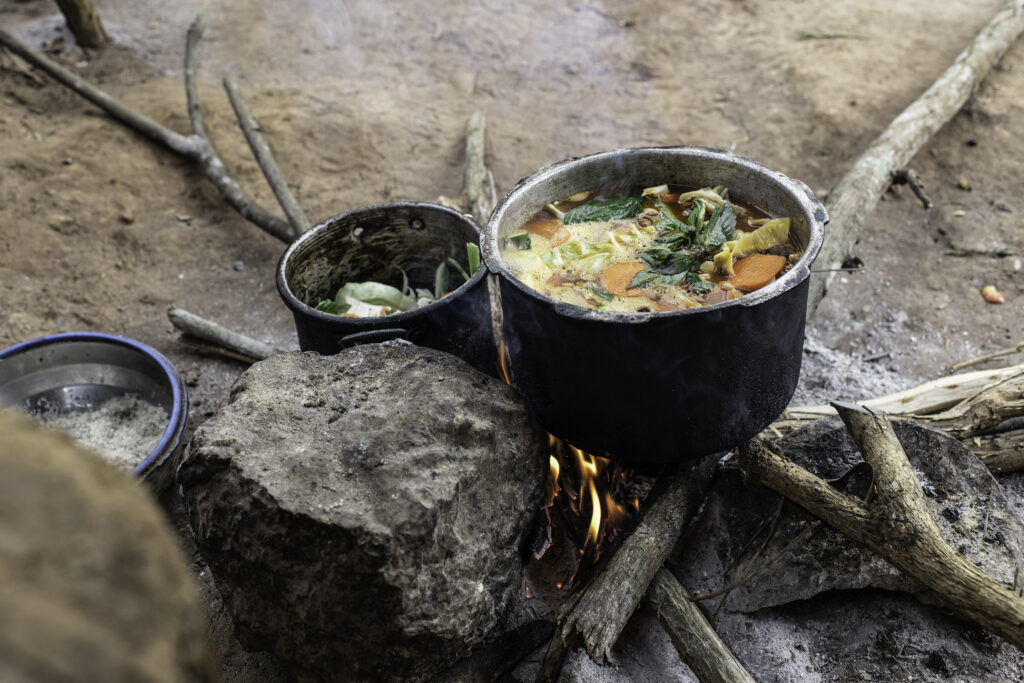
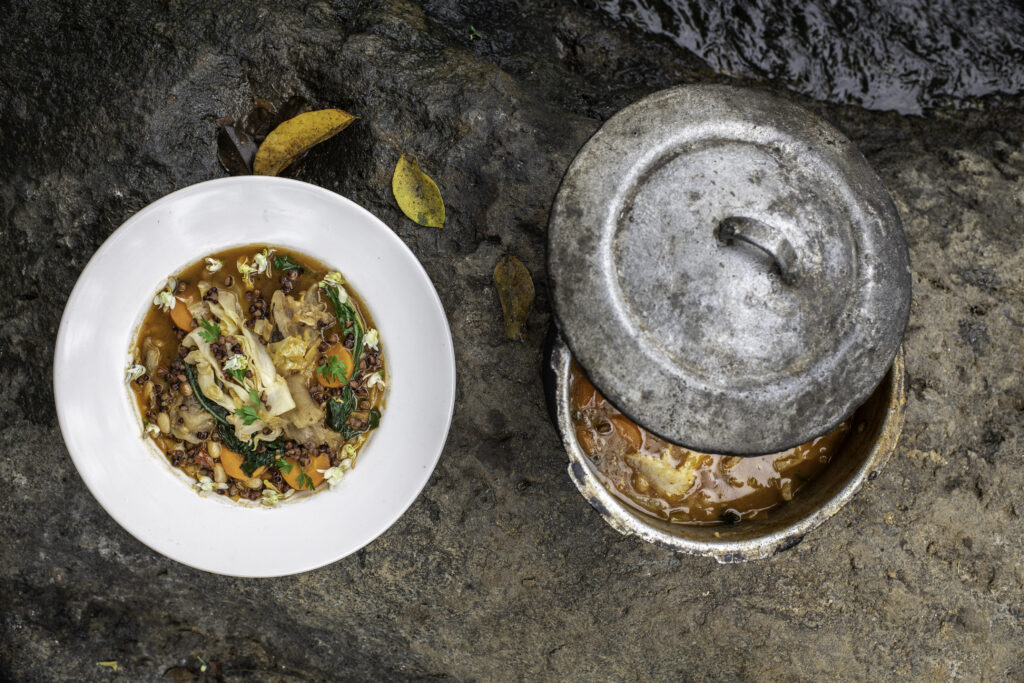
#AfricanCITYFOODMonth 2022 photography competition. See the full exhibition here.
Photo series by Chilala Moco
ecently closed is a project called ‘Investment opportunities in Africa’s Urban Food Systems (FS.Invest). FS-Invest aimed to facilitate the engagement of local governments, local partners, investors, financiers and food system stakeholders for investment in urban food systems programmes in an event aimed to match identified opportunities with potential investors and funders to encourage those with agency to move forward and implement the identified opportunities to do so. The first phase of the project guided stakeholders towards identifying possible urban food system investment opportunities to be implemented in five cities- Arusha, Cape Town,Lilongwe, Maputo and Lusaka. The second phase of the project guided stakeholders towards investing in one of the previously selected opportunities which would potentially ensure nutrition outcomes in three cities – Arusha, Cape Town and Lilongwe. The opportunities were presented in a matchmaking event that was attended by food system stakeholders. All those who attended the matchmaking event were in agreement that all investment opportunities proposed by the cities have the potential to address identified food system challenges in the project city as well as improve food related infrastructure and livelihoods thus ensuring access to safe and nutritious food in the long term. Furthermore, the opportunities identified in the F.S. Invest project are aligned with the primary needs of the project city’s and linkages can be made with ongoing ground work in the city’s.
In addition to prioritising vulnerable groups, we democratise food governance spaces through initiatives such as the Food Dialogues and the #AfricanCITYFOODMonth campaign ,in partnership with other key organisations working towards a just and equitable food system. These initiatives provide multiple platforms that bring on board stakeholders to build an understanding of different food system challenges, opportunities, as well as highlight food systems initiatives in cities. Moreover, the platforms empower different food systems stakeholders with the right capacities to champion inclusive, resilient and sustainable food systems in their cities through peer-to-peer exchange and learning. The #AfricanCITYFOODmonth campaign runs annually in July and additionally uses the platform to share resources with stakeholders, to help better understand strategic areas and critical actions for transforming their urban food system.
ICLEI Africa’s work in food systems empowers local and subnational governments as well as food system stakeholders, in creating inclusive, urban environments that center citizens and ensure that no one is left behind. Moreover, our work strives to locate stakeholder responsibility and opens up spaces for participatory processes which guide inclusive outcomes. By including those affected by food insecurity in governance processes, we re-build a functional and resilient food system. When people are included in processes towards the fulfillment of their right to food, it is easier to identify their needs and implement interventions that are relevant to their needs. Furthermore, participation empowers individuals to claim their right to food, as they have a better understanding of what the right to food entails. ICLEI Africa is continuously working towards creating an enabling environment for people to realize their right to food.
The right to food is not primarily the right to be fed after an emergency. It is the right, for all, to have legal frameworks and strategies in place that further the realization of the right to adequate food, as a human right recognized under international law.
~ Olivier de Schutter, United Nations Special Rapporteur on the right to food, Briefing note 01-May 2010
Endnotes
(1) FAO, IFAD, UNICEF, WFP and WHO. (2021). The State of Food Security and Nutrition in the World 2021. Transforming food systems for food security, improved nutrition and affordable healthy diets for all. Rome, FAO.
(2) Conceição, P et al. (2022). Uncertain Times, Unsettled Lives: Shaping our Future in a Transforming World. United Nations Development Programme 2021/2022 Human Development Report.
(3) FAO, (2019). Right to adequate food in constitutions. Guide to Legislating on the Right to Food.
(4) UNFPA. (2005). Human Rights Principles.
(5) The Constitution of the Democratic Republic of Congo, (2005).
(6) The Constitution of Kenya, (2010).
(7) Constitution of the Republic of South Africa, (1996).
(8) FAO, ECA and AUC. (2021). Africa – Regional Overview of Food Security and Nutrition 2021: Statistics and trends. Accra, FAO.https://doi.org/10.4060/cb7496en
(9) FAO, ECA and AUC. (2021). Africa – Regional Overview of Food Security and Nutrition 2021: Statistics and trends. Accra, FAO.https://doi.org/10.4060/cb7496en
(10) World Health Organisation. (2021). Obesity and Overweight. Available here.
(11) FAO, (2021). Africa – Regional Overview of Food Security and Nutrition 2021. Statistics and trends report. Available here.
(12) Economic Development in Africa Report, 2021. Reaping the potential benefits of the African Continental Free Trade Area for inclusive growth. Facts and Figures. Available here.


